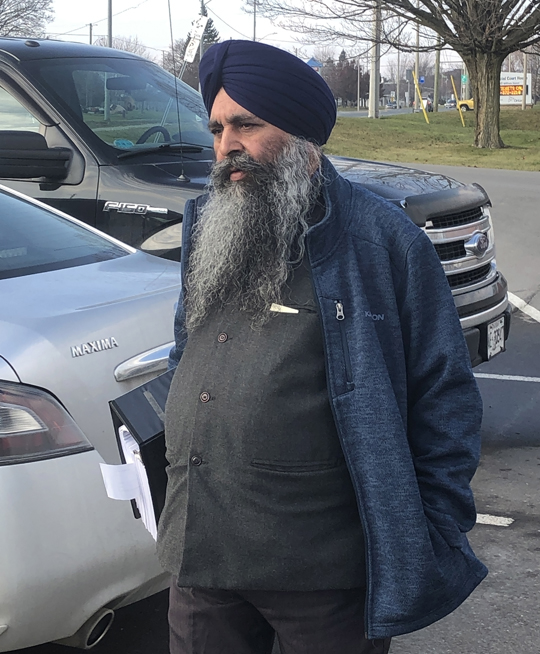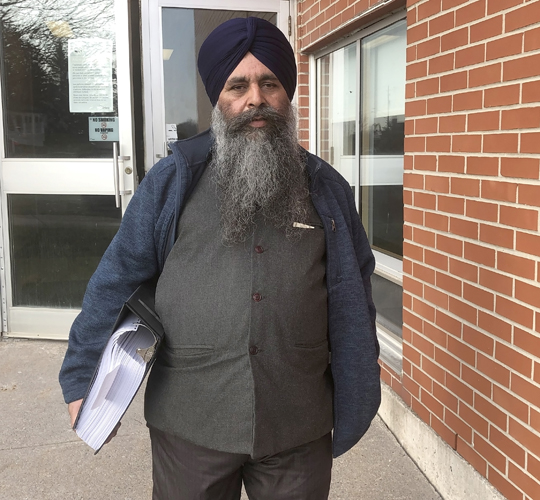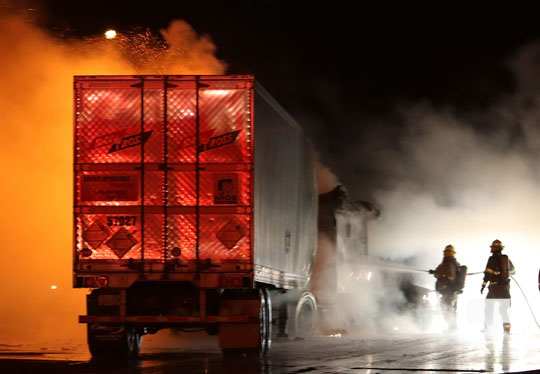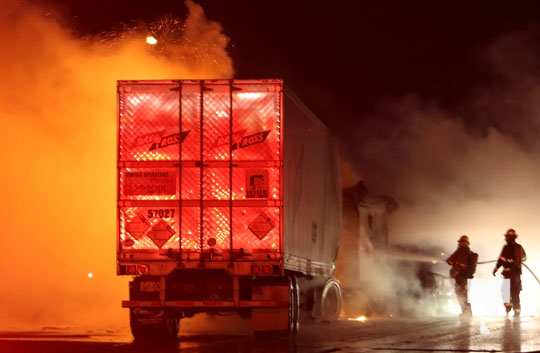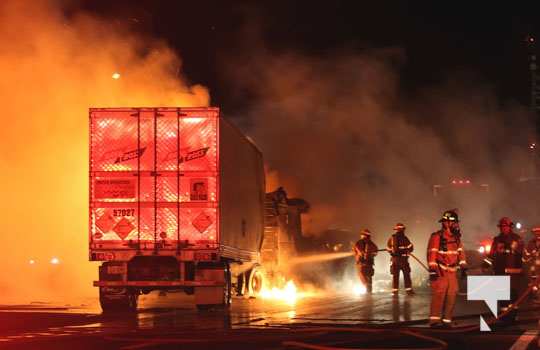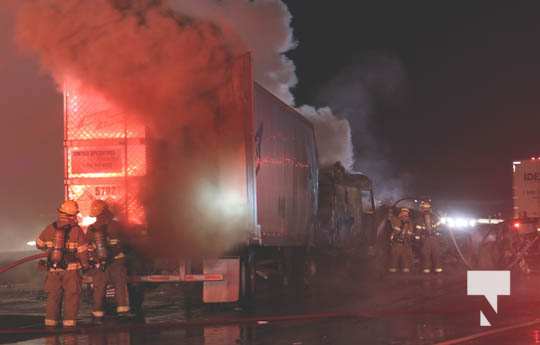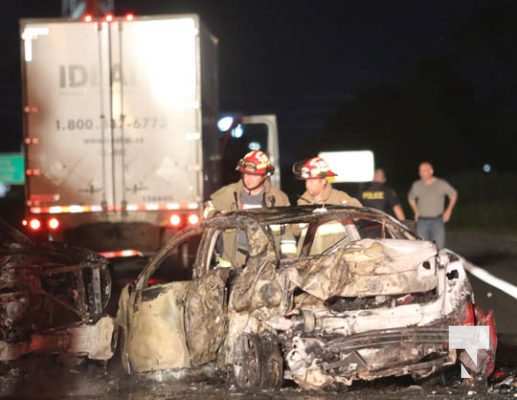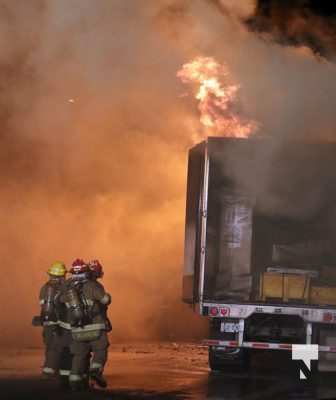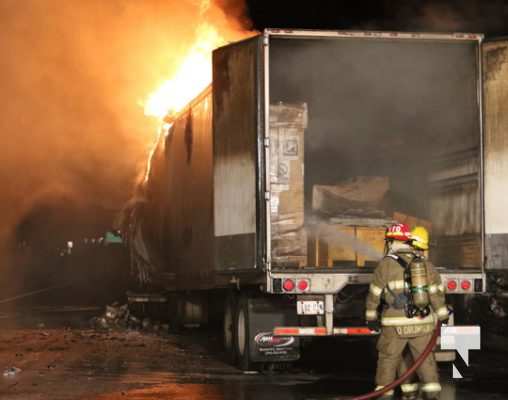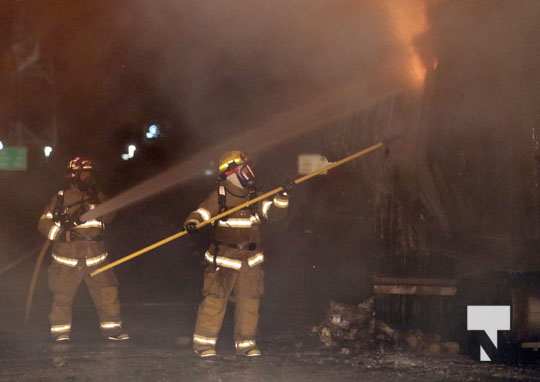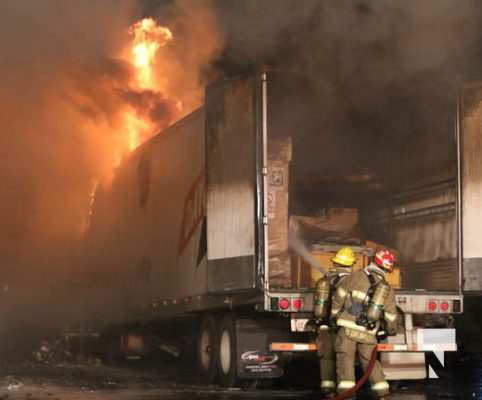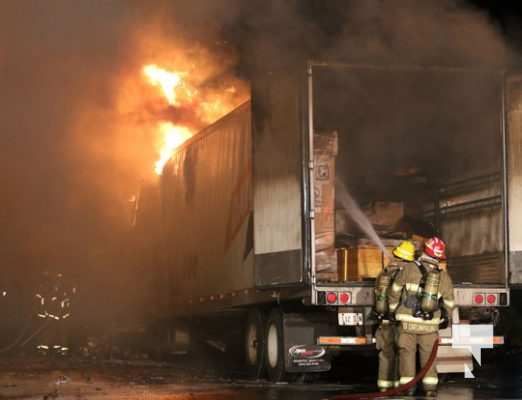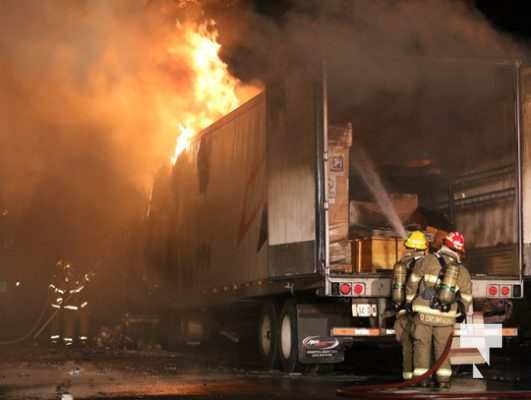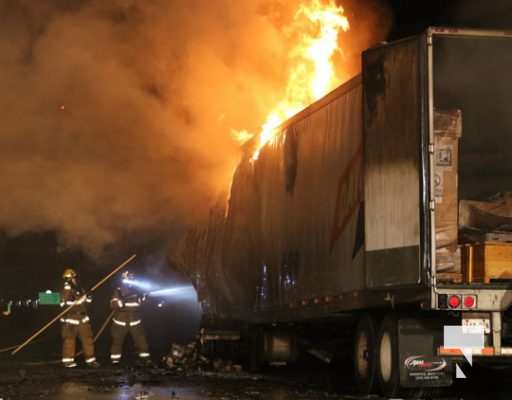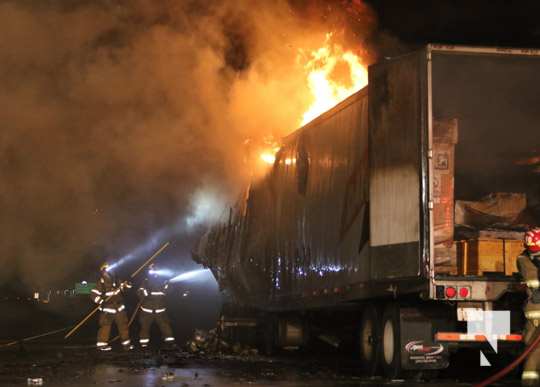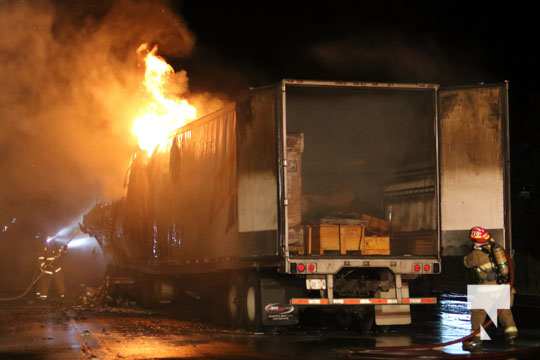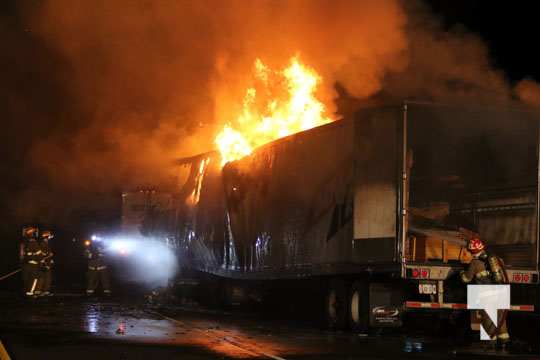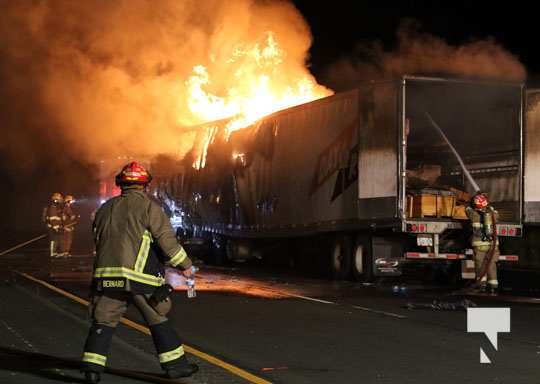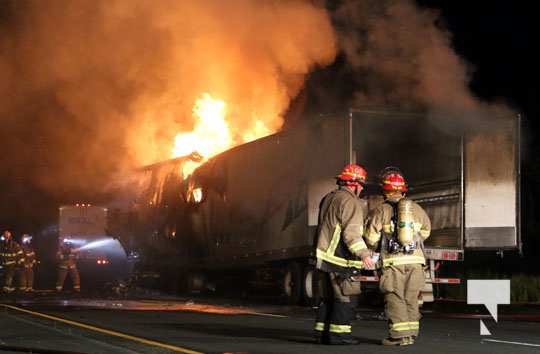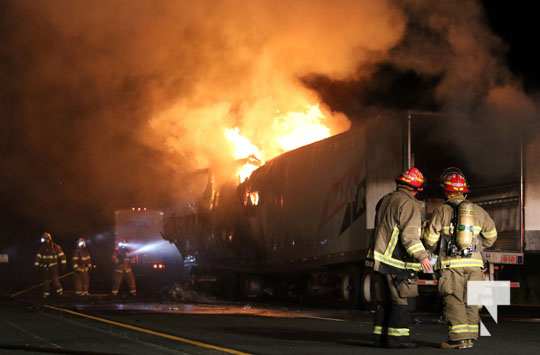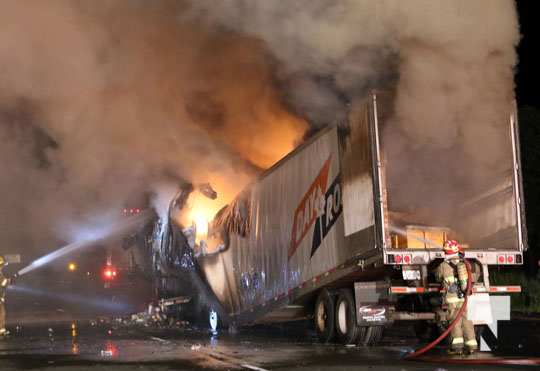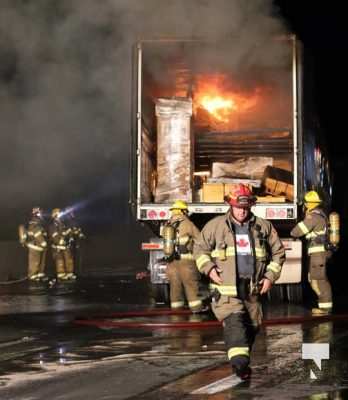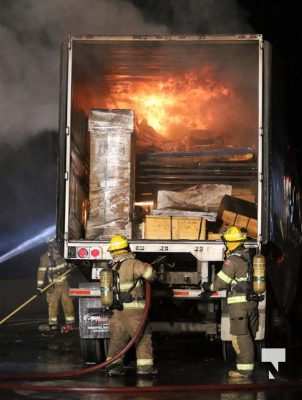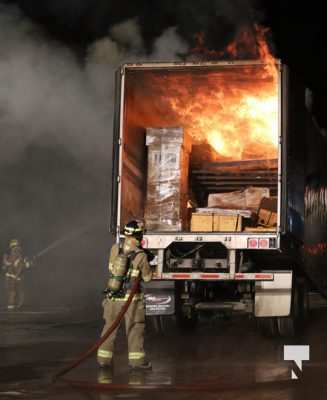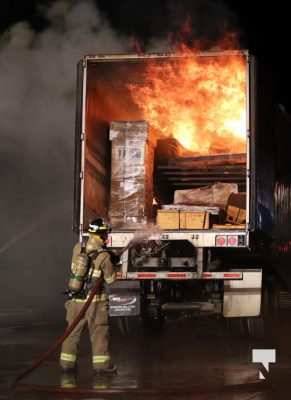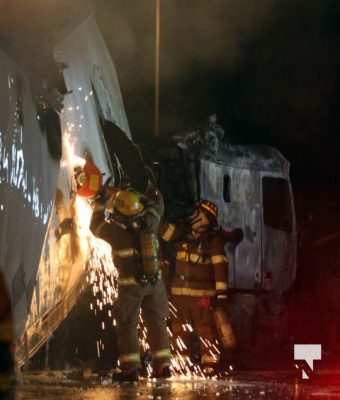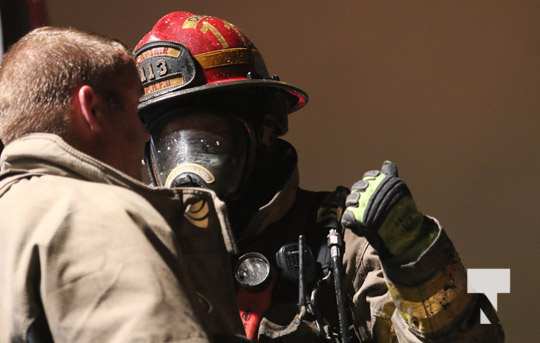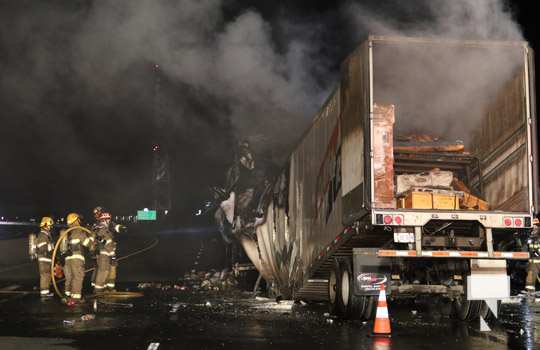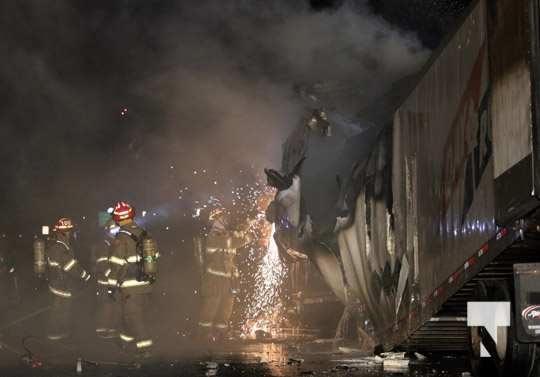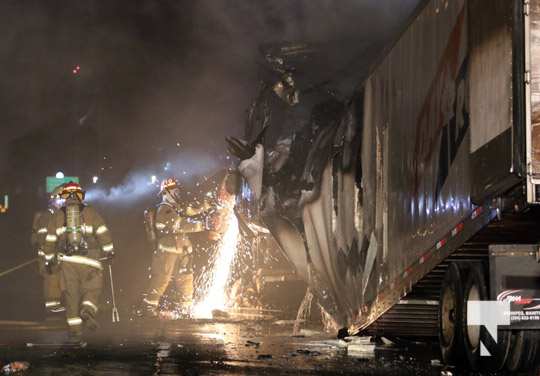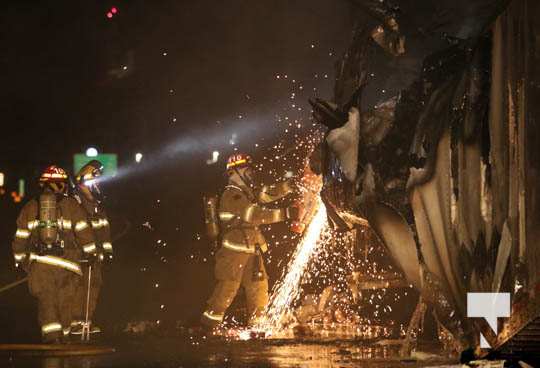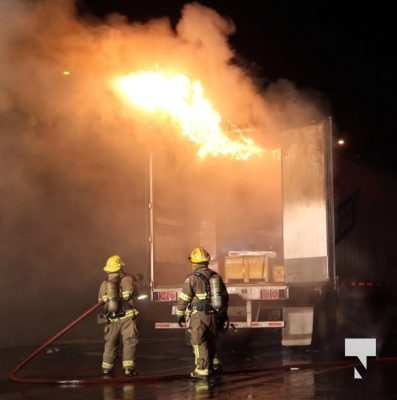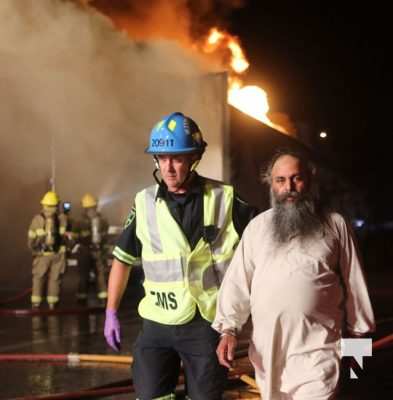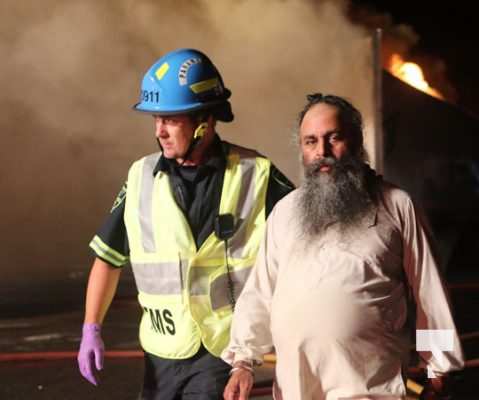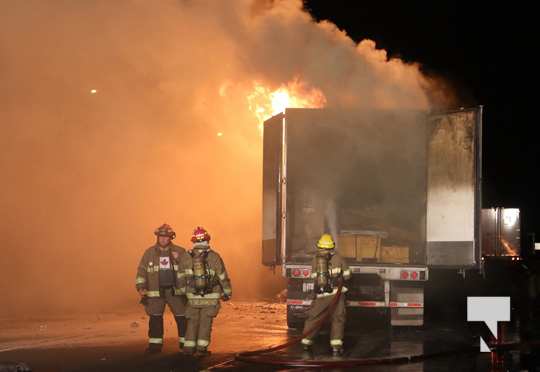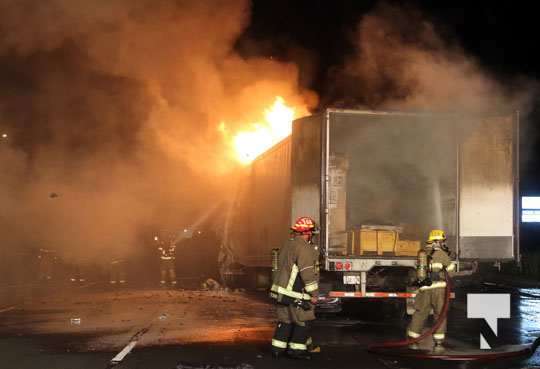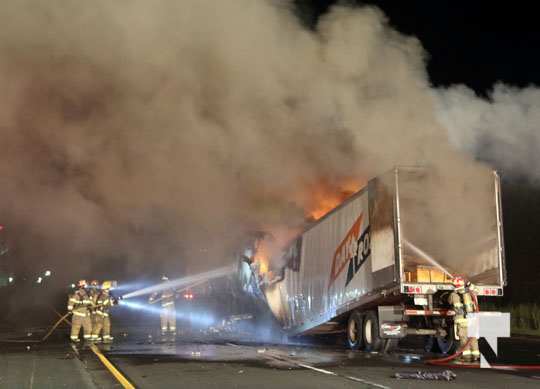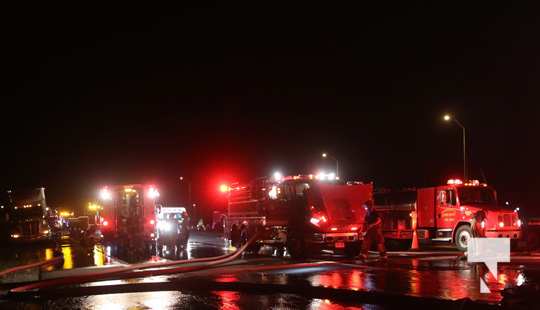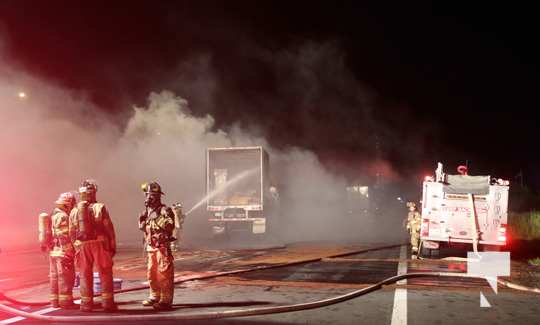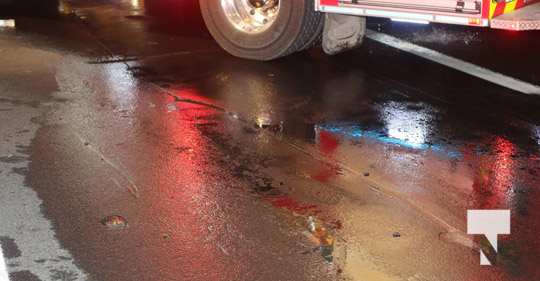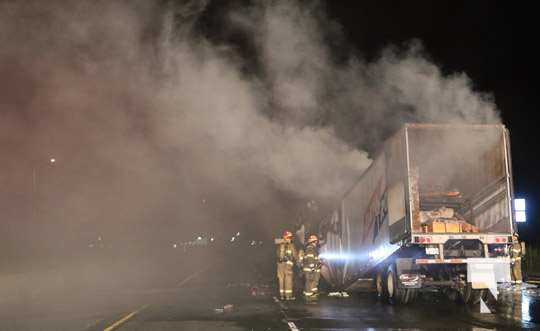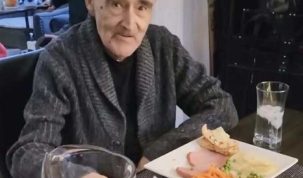A Brampton man who was responsible for the deaths of two men in a horrific collision on Highway 401 in Port Hope in 2017 was sentenced to three years in prison in Superior Court on Thursday, July 8, 2021.
Baljinder Singh (age 56 at the time of the collision) sat with his interpreter and attorney, Sunny Vincent. Also in the courtroom were families of both victims, along with members of Singh’s family and Crown Attorney JulieAnn Barrett.
Justice Jocelyn Speyer took approximately 45-minutes to read her decision to the courtroom that was also on video for those who could not or wished to not attend.
COLLISION
Baljinder plead guilty in February 2021 to, two counts of dangerous driving causing death after his transport truck slammed into a pickup truck on the eastbound lanes of Highway 401 just east of County Road 28 on August 3, 2017 at approximately 10 p.m.
Todd Gardiner (age 26) from Newcastle and his cousin Michael Glazier (age 35() from Guelph were on their way to a family golf tournament when they were killed after Singh’s 2016 Volvo cab and trailer slammed into their pickup truck that was almost stopped as a result of construction.
Both vehicles along with another were consumed by fire. Gardiner and Glazier died at the scene.
Singh was not injured.
The two men were going to their family cottages as they did annually to play golf and celebrate Gardiner’s fathers (Terry) birthday.
“Todd Gardiner and Michael Glazier did not arrive at their destination,” said Justice Speyer. “They were killed when a tractor trailer transport truck driving by Mr. Singh slammed into the back of their vehicle as they drove very slowly, at the end of a long line of backed up traffic,” stated Justice Speyer at the beginning of the sentencing hearing.
During the summer months, Speyer said it’s not unusual that there was construction on Highway 401 with lane closures.
“Road conditions were good and visibility was excellent. The presence of the backed up traffic was announced by the brake lights of the vehicles ahead.”
Other truck drivers gave statements they saw the brake lights and “had no trouble stopping.”
“Mr. Singh had a clear view of the road ahead and he was travelling at the speed of 100 kph.”
As Singh was approaching a slower truck in the middle lane, he changed lanes to proceed past the transport.
“He decided to change lanes, seemingly oblivious to the fact that traffic in lane three had also slowed down or stopped.”
“He could have safely slowed down as the transport truck in front of him did.”
“He chose to move to lane three.”
When Singh’s transport crashed into the Chevy Silverado pickup truck driven by Todd Gardiner, the OnStar system in Gardiner’s pickup recorded a sudden acceleration. In less than a second from 14 kph to 72 kph.”
The speed of the Singh transport truck at the time of the collision was between 89 kph and 92 kph.
The force of the collision caused the Gardiner vehicle to collide with another vehicle, which inturn collided with another transport truck.
Singh’s transport, along with Gardiner’s vehicle and another vehicle were engulfed in flames. The two men died at the scene.
BALJINDER SINGH
Speyer said Singh’s actions that night, “were the product of his deliberate choice.”
There was no evidence of drugs or alcohol, or that Singh was distracted or fatigued.
Singh is a permanent resident of Canada. Has been married twice and has three children.
He came to Canada in 2007 and made a successful claim for refugee status and became a permanent resident of Canada in 2009.
Singh has not sought on Canadian citizenship.
When Singh first came to Canada he worked as a priest for the first year.
He obtained his transport license in Montreal where he drove for four years.
After that he moved to Brampton where he worked as a long distance truck driver to Montreal, New Brunswick and Calgary where he remained employed as of sentencing.
Justice Speyer said Singh is not in good health experiencing, hypertension, kidney stones, insomnia, major depression, anxiety, post traumatic stress disorder among others which are mostly as a result of the collision.
Singh’s apology submitted previous to the court, states he feels very guilty and sorry about what happened.
“He thinks about the collision all the time and prays for the souls of the dead men and their families.”
Justice Speyer said Singh does have a record of conviction for numerous Highway Traffic Act offences related to his driving including, two convictions for an unsafe move in 2010 and 2012, one conviction for disobeying a red light in 2011 and a conviction in 2015 for improper drive on divided highway – lane change.
Each of the convictions resulted in demerit points.
VICTIMS FAMILIES
Justice Speyer said the Gardiner and Glazier families have been “devastated” as a result of Singh’s actions.
“There are no words that could adequately describe the magnitude of their loss.”
Todd Gardiner was a only child. He was 26-years-old when he died.
“He was loved by his parents and soon-to-be fiancé.”
Gardiner volunteered as a ice hockey and ball hockey coach.
His parents told Justice Speyer they feel empty inside.
“Angry, and full of sorrow. They have no interested in anything they used to enjoy. They take medication for anxiety and depression.”
August 3 was the birthday of Todd’s father.
“Instead of meeting his son at the door. He met a police officer who told him his son was dead.”
The parents no longer celebrate the birthday.
Justice Speyer said Todd’s mother, Pauline said, “they have no life left – because Todd was their life.”
Todd’s father, Terry said to Justice Speyer, “that they had a good and loving life. But now, live in a nightmare in which they will never waken.”
Todd’s fiance feels that she has no future, “and that her life has no purpose and she looks forward to nothing.”
Michael Glazier was 35-years-old when he died.
He loved hockey. He was a kind, hardworking man who was engaged to be married.
He looked forward to starting a family.
His mother is, “heartbroken, numb, in shock and can’t work.”
She’s taking medication for depression and to help her sleep and said she needs the medication just to function.
His father says the families lives will never be the same.
“They just go through the motions of living.”
Micheal’s fiance said, “she is existing, not living.”
“She is lonely and has no joy in her life.”
Other family members explained, “families are broken, lives are devastated.”
SUBMISSIONS FOR SENTENCING
The Crown was submitting a sentence of two-to-three years to denounce and achieve deterrence.
Sunny Vincent, who is Singh’s lawyer submitted a sentence of five-months-and-two-weeks should be imposed.
Vincent stated a sentence of under six months should be imposed because of the “collateral consequences” to Singh including his possible deportation from Canada to India where it would place him in “grave danger.”
Justice Speyer stated the fundamental purpose of sentencing, “is to contribute, to respect for the law and the maintenance of the just, peaceful and safe society.”
And to deter others from possibly doing the same thing. Promote the responsibility of the offenders and acknowledge the harm to the victims and to the community.
Both the Crown and the Defence provided numerous cases for Justice Speyer to consider in her sentence.
The range of sentence in those cases supplied is “extremely broad.”
Justice Speyer stated numerous comparable cases that she considered for sentencing.
“Regrettably, tragedies such as this where drivers of transport trucks operate their massive vehicles dangerously and with catastrophic consequences are not rare events.”
In Regina vs Bosco, the British Columbia Court of Appeal reminded all drivers – “driving offences are unusual in that otherwise law abiding citizens maybe inclined to commit them without fully appreciating their criminality. Driving is a common place activity and to varying extents, human frailty like impatience, inattentiveness and impulsivity are ubiquitous.”
“When drivers irresponsibly indulge such frailities from behind the wheel, they imperil others in their orbit. Sometimes with catastrophic consequences. All drivers are expected to know this and govern themselves accordingly. When they do not and harm ensures – the result is no mere accident. It is a true crime.”
In Regina vs Saimi where the defended operated westbound on Highway 401 and failed to slow down as he approached traffic backed up in a traffic zone. Lines of brake lights were plainly visible to warn approaching traffic.
Saimi’s truck collided with several vehicles. Four people were killed and nine suffered bodily harm including permanent disability.
The sentence imposed was six-years for four counts of dangerous driving causing death and nine counts of dangerous driving causing bodily harm.
In Regina vs Jespir Singh, Singh operated a transport truck on a two-lane northern highway in whiteout conditions.
When he attempted to pass a slower vehicle in those dangerous conditions and collided head-on with an approaching vehicle.
One person was killed. Jespir Singh was convicted of dangerous driving causing death and was given a three year prison sentence.
In Regina vs Dasheem Singh – Singh operated a dumptruck that went through a red light and collided with a vehicle. The driver of that vehicle was killed. Singh had a prior for Highway Traffic Act offences and for Criminal Code drinking and driving. Singh was convicted of dangerous driving causing death following a trial and was sentenced to two-years and was prohibited from driving for five years.
In Regina vs Bahngal – the Ontario Court of Appeal upheld a sentence of five years in prison in a case where the truck driver was convicted of one count of criminal negligence causing death. Bahngal was driving a truck that drifted into oncoming traffic colliding with a mini-van in which the driver was killed.
Bahngal was found to have deliberately ignored driver safety rules and doctored his log book in an attempted to avoid his rest obligations in which he was warned only days before the collision.
Justice Speyer said in reviewing the cases where “professional truck drivers” where a death is involved is the range of two to six years where a conviction has been entered after a trial.
AGGREVATING FACTORS
The aggravating factors involved in the case before Justice Speyer are that Mr. Singh was driving a transport truck, “and well knew the damage it could do in a collision.”
“Rather than exercising the exception of care that should be exercised as a professional driver operating a very large vehicle, he chose to execute a dangerous manoeuvre when he had ample opportunity to drive safely.”
Mr. Singh has four prior convictions for Highway Traffic Act violations.
“The offences had profound and tragic consequences. Two young men – Todd Gardiner and Michael Glazier were killed.”
The impact on the families of both men has been “devastating.”
MITIGATING FACTORS
Justice Speyer said the mitigating factors were Mr. Singh plead guilty which assures a conviction and eliminates the need for a trial.
Mr. Singh is, “genuinely remorseful” and was a contributing member of the community before the collision.
“While I have considered the possible immigration consequences I have concluded the sentence to be imposed in this case, which must give effect to the applicable principal of sentencing, including the principal of parody should not be adjusted to avoid what are entirely speculative immigration consequences.”
SENTENCE
“Mr. Singh did not set out to hurt anyone on August 3, 2017. He set out to do his job as a long distance truck driver. No explanation was offered for why he chose to engage in a criminally dangerous course of conduct. The most likely explanation is that he was in a hurry and did not want to slow down. But he did chose to engage in a criminally dangerous course of conduct. And as a direct result of his decision and actions, two men died and the lives of their loves ones are forever damaged.”
“Having regard to all of the circumstances, the proper sentence to impose n this case, that balances the aggravating and mitigating factors is a sentence of three years in a penitentiary. But for the fact that Mr. Singh has accepted responsibility for his conduct by entering a plea of guilty, the sentence would have been higher.”
“The sentence of three years in a penitentiary is three years on each count to be served concurrently.”
Singh was also given a driving prohibition of five years, “which is entirely appropriate in this case.”
FINAL COMMENTS
Justice Speyer said, “I appreciate that the sentence imposed is of very significant consequence for Mr. Singh, but also entirely inadequate to reflect the loss suffered by the loss of the Glazier and Gardiner families.”
“Nothing a court can do, can possibly undo or make better their situation. If anything positive can come of this tragedy it is my hope that the operators of large commercial vehicles may take note and drive more cautiously as though their family members were occupying the vehicles around them. And those lives were dependent on the manner on which they operated their trucks.”
Two counts of criminal negligence causing death were withdrawn by the Crown.
Singh was placed in handcuffs and removed from the court to serve his prison sentence.



